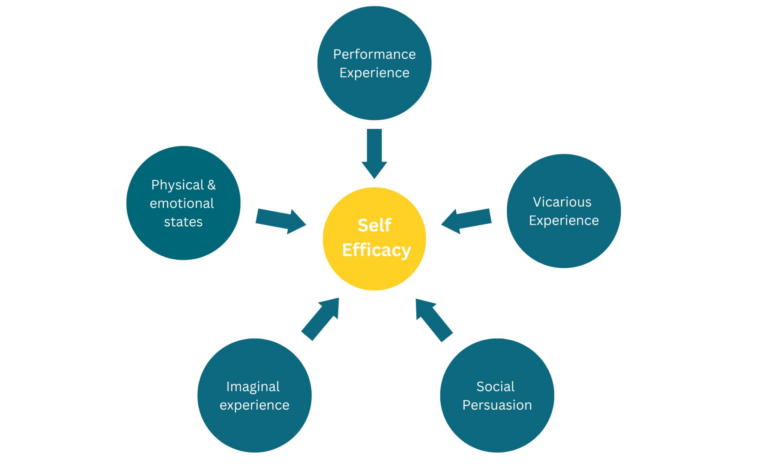Having identified an opportunity to commercialise your research results, as we discussed in our last article, you must then determine the feasibility of commercialisation on the basis of the resources available. The availability of the right resources for commercialisation is a key component that impacts whether you should start your own company — with all the uncertainty that this brings — or stick to academia and focus on the detail of your idea. The most crucial resource is the entrepreneur themselves and the skills, traits and abilities they bring to the table. It is for this reason that oftentimes the decision on whether research results are commercialised, and the manner in which this occurs, comes down to the ambition and determination of the individual, as well as their ability and willingness to take the risks entailed.
While there is no definitive answer to the question of which personal traits make for a successful entrepreneur, some common themes do emerge. A defining characteristic of many entrepreneurs is that they are visionaries, not necessarily with regard to their business plan or product design, but rather their ability to accurately predict the needs of their customers, not only at the present moment but also in the short, medium and long term. This trait, coupled with the individual’s open-mindedness, enables them to remain alert to opportunities, to be open to new information and to successfully future-proof their concepts. This visionary element also allows the entrepreneur to form a good foundation for their product pitch when interacting with clients and investors, by showing the utility of their product and sustainability of the business. Furthermore, while entrepreneurs are not necessarily risk takers, they cannot be completely risk averse. Risk is an inherent part of early stage ventures and the individual’s ability to accept and mitigate against risk can make the difference between a successful venture and an idea that remains on paper.
Alongside these entrepreneurial traits, many of which can be considered innate, are traits and skills that can be perfected and acquired over time, and which will prove to be a valuable resource for any entrepreneur. Chief among these skills are those relating to negotiation, communication, presentation and time management. To some extent these skills can be outsourced or satisfied by a business partner, however, these skills need to be part of the early-venture team as they are essential in order to meet the pressures associated with start-ups, including pitching and selling the product or service, negotiating investment opportunities and early customers in the beachhead market, and delivering on the multitude of tasks that will be required to get your business off the ground.
Beyond these skills, an entrepreneur must be able to rely on their self-efficacy. Self-efficacy is the belief in one’s ability to succeed in achieving an outcome and it is made up of a number of factors that come together to give the entrepreneur the ability to have the confidence that will determine their willingness to push their idea forward and make it into a reality. Firstly an individual who has performance experience is more likely to feel confident in their ability, particularly when this experience closely mirrors the attributes needed for the running of a business. Similarly entrepreneurs may benefit from vicarious experience through the observation of their parents or role models who have themselves been entrepreneurs or otherwise been involved in higher management. Imaginal experience is also a contributing factor to self-efficacy, as their tried and tested ability to visualise and imagine the eventualities and possibilities arising from the start-up can place them in a more secure position when venturing into the unknown. Beyond this experience, one cannot overlook the physical and emotional state of the individual, both in terms of their health as well as with regard to their perception of the start-up. If an individual has a negative or stressful emotional response to their business concept then this will impact their self-efficacy, compared to a more positive, excitement-driven, response. This may also be influenced by social persuasion, a factor in its own right, which is a catch-all term for the support and encouragement of the entrepreneur’s immediate social circle.

Illustration of the factors that determine an individual’s level of self-efficacy.
We can infer, therefore, that entrepreneurial skill depends on a complex interaction of a variety of factors both intrinsic to the individual and those dependent on his external situation. The aspects covered in this article are by no means an exhaustive list of attributes that are important for an entrepreneur, but provide a focused look at some of the key resources central to research commercialisation. The European Entrepreneurship Competence Framework (EntreComp) is a common reference framework developed by the European Commission, which identifies 15 competencies that are integral to an entrepreneurial mindset. All of these are worth considering before undertaking the challenges of a new entrepreneurial venture.
It is however encouraging to know that a lot of these competencies can be learnt through the right educational opportunities, especially through experiential learning, or ‘learning-by-doing’. This is one of the central ideas behind the Entrepreneurial Residency Programme we are developing as part of the Venture Alliances project. In the preparatory courses offered to participants of the Entrepreneurial Residency Programme we address several of the topics covered in this article and more. These courses are intended to prepare participants to pursue collaborations across academia and industry through the Venture Alliances collaboration platform, and to stimulate new opportunities for research commercialisation.
To find out more about this programme and register your interest to join our industry-academia collaboration platform, click here: www.venturealliances.eu.
